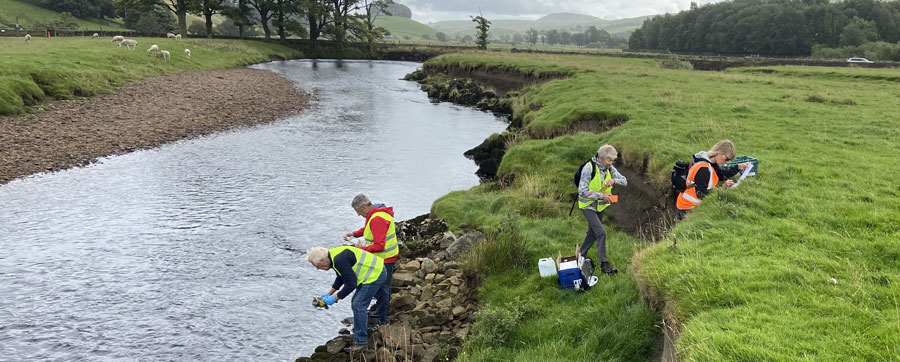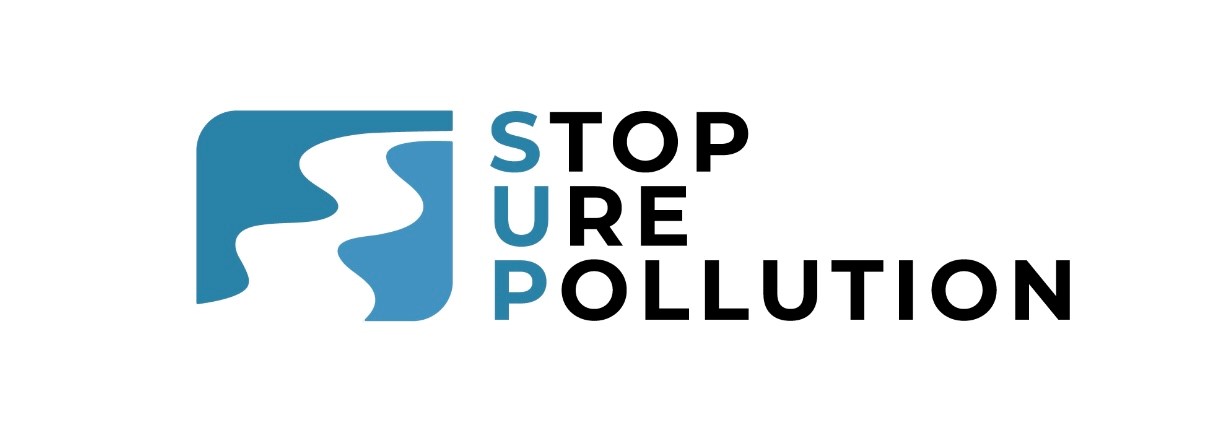We encourage anyone who is interested in supporting us, to be kept informed about our progress and to become involved in our citizen science testing programme. Please use the contact form to register your interest.
 A team near Hawes
A team near Hawes
If you see an ingress or outflow to the river of concern to you e.g. discoloured water, effluent, solids of unknown constitution or if you see a drain or manhole overflowing then call the Environment Agency (EA) Hotline. Be as descriptive as you can as they will want to know the location, if there is evidence of wildlife in peril or distress, and if there is odour. The number to dial for this 24-hour service is: 0800 80 70 60.
We also welcome photos and videos of pollution events along the river which we will aim to post on social media and on this website.
To report pollution, sewage or drainage problems contact Yorkshire Water at 0800 138 3484 or via its webpage Get in Touch.
There is map to see if the problem is already known about. (This is separate from the storm overflow map)
If you want to check on sewage discharges along the river click on either of these to go to the relevant webpages:
Yorkshire Water's map of sewage discharges
Top of the Poops (Surfers Against Sewage regarding state of rivers in Yorkshire)
A sewage treatment plant is a natural biological process that relies on receiving normal organic waste. The waste water and sewage from most dwellings flow along the same pipes so we need to be careful about what we use in our homes. So try to avoid the following getting into the sewage system:
• Wet wipes and baby wipes – the cause of estimated 90% of sewage pipe blockages especially when mixed with grease, cooking oil and fat.
• Medication should never be flushed down the toilet as it can pollute the water supply. Instead, dispose of old or unneeded medications safely at a local pharmacy.
• Sanitary towels, tampons, nappies and condoms
• Makeup
• Cotton wool and cotton buds
• Chewing gum and plasters
• Tissues and paper towels
• Bleach
• Cat litter and pet waste
• Cigarettes
• Milk, wine, beer and other alcoholic beverages
• Hair, from humans and pets, will never dissolve and so builds up until it creates a blockage.
Read the labels on detergents – three of the worst environmental hazards can be found in household cleaners: phosphates, nitrogen and ammonia. Phosphates act as fertilizers, causing plants to grow far more rapidly than they would naturally, choking our waterways.
The efficiency of our sewage treatment plants is also reduced when there are too many people using the system.
Toby Milbank adds:To help with this please consider -
- Ensure your rainwater pipes are seperated from your waste water pipes
- Use your shower rather than your bath
- flush your toilet as infrequently as possible. Every flush uses about 10 litres of water
- Make sure your washing machine and dishwasher are completely full before using them
